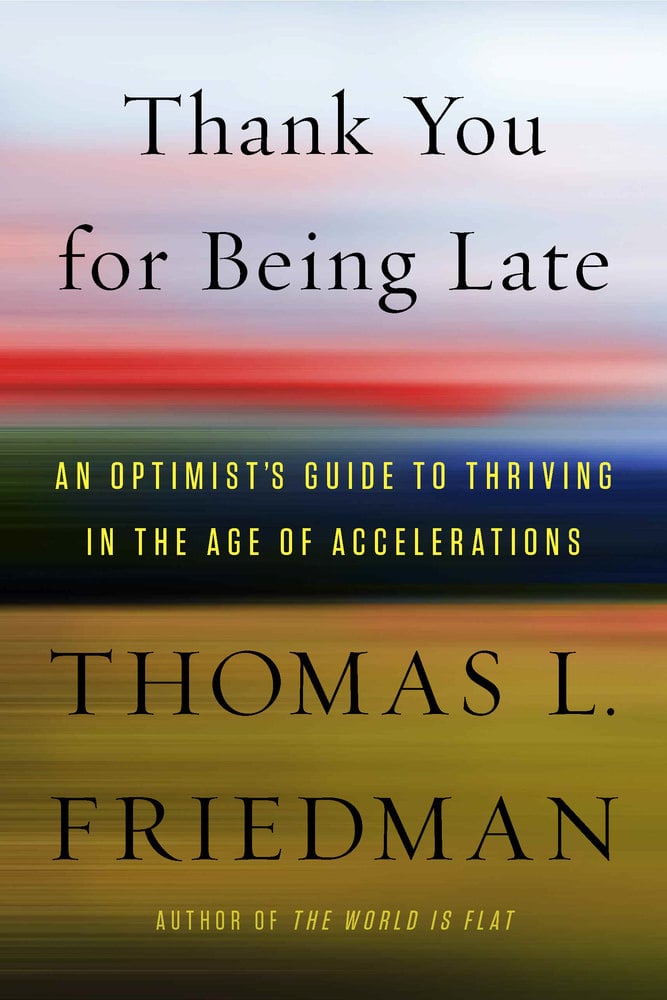 Over the weekend, I continued reading Tom Friedman’s new book, Thank You For Being Late: An Optimist’s Guide to Thriving in the Age of Accelerations. I have to admit that the second section on accelerations – technologies, globalizations, and ecologies – scared the crap out of me!
Over the weekend, I continued reading Tom Friedman’s new book, Thank You For Being Late: An Optimist’s Guide to Thriving in the Age of Accelerations. I have to admit that the second section on accelerations – technologies, globalizations, and ecologies – scared the crap out of me!
In a methodical manner, Friedman laid out his case that we as a planet have reached a tipping point. Moore’s law has reached the point where connectivity worldwide is basically fast, free, easy for you and ubiquitous and handling complexity has at the same time become fast, free, easy for you and invisible due to the cloud.
In his 2005 book The World is Flat, Friedman was widely quoted for stating:
In this book, he discusses a global cloud based company that originated in the eastern part of Turkey – not China or India. In the 12 years since The World is Flat was published, we have gone from competition residing in big countries to competition residing anywhere. The market economy has shifted from one based on products to one based on flows, which harkens back to the Goodwin quote from a couple of posts back:
“Uber, the world’s largest taxi company, owns no vehicles. Facebook, the world’s most popular media owner, creates no content. Alibaba, the most valuable retailer, has not inventory. And Airbnb, the world’s largest accommodation provider, owns no real estate. Something interesting is happening.”
Probably most unsettling is what he called the black elephants – a cross between black swans (low probability events with major implications) and elephants in the room (problems visible that no one wants to acknowledge). Friedman then went on to discuss in detail nine such black elephants:
- Climate change (we have already tipped beyond the recommended 350ppm for CO2 in the atmosphere – so we are getting hotter)
- Biodiversity (the annual loss of species)
- Deforestation (down to around 62%, where 75% is the level needed to maintain healthy atmosphere)
- Biogeochemical flows (the addition of chemicals to the water system)
- Ocean acidification (growing but still within safe limits)
- Freshwater use (growing but still within safe limits)
- Atmospheric aerosol loading
- Introduction of novel new entities (nuclear, plastics)
- Atmospheric ozone layer (the only limit we as a planet addressed and have moved back from the brink)
Compounding all of these is the continuing growth in human population. Looking at humanity as a whole, we have increased life expectancy and dropped mortality rates, but not decreased birth rates. When one looks at all of the black elephants noted above, and then adds the compounding element of adding even more humans to the mix, it paints a dire picture!
So Friedman got my attention…now I need to read the next section to see just where the “optimist” in his title comes in!
